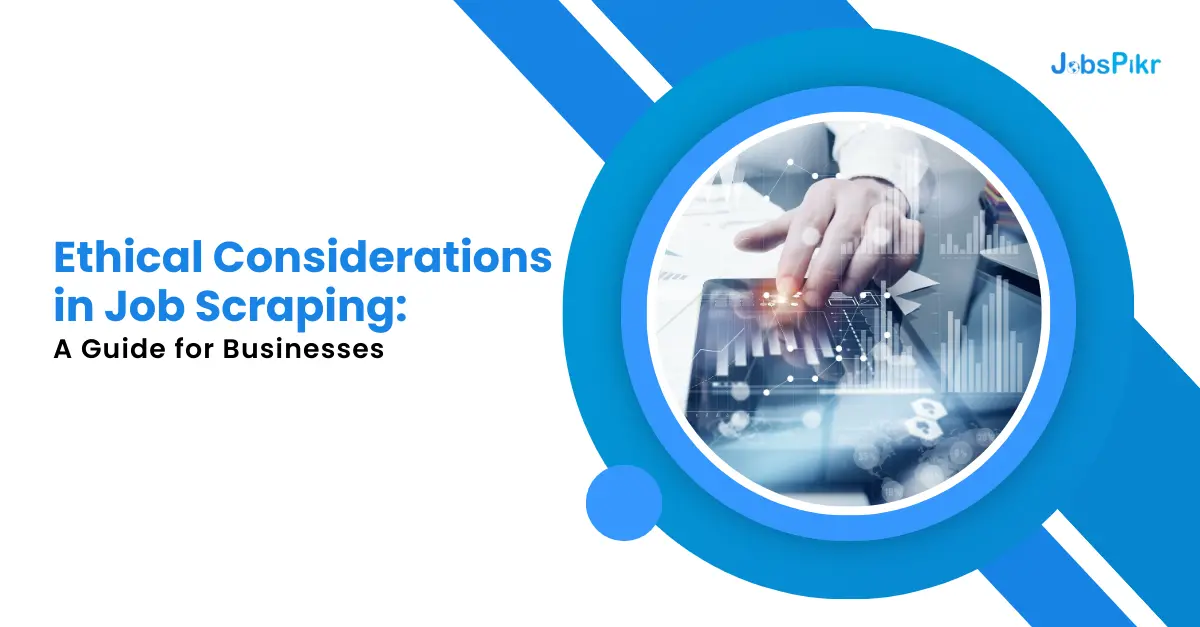The practice of using job scraping software to extract job listings from various websites has become a prevalent tool for businesses in streamlining their recruitment processes. However, this technology raises significant ethical considerations that businesses must navigate to maintain integrity – for its brand, the websites scraped, and the clients and job seekers that use the data.
Let’s look into the different ways of scraping data ethically without breaking the law –
Respecting Data Ownership and Privacy
One of the primary ethical concerns with job scraping is the respect for data ownership and privacy. When scraping job listings from other websites, it’s crucial to consider the ownership of this data. Websites often have terms of service that prohibit unauthorized data extraction.
For instance, LinkedIn’s legal battle against data scrapers highlighted the complexities of data ownership in the public domain. Businesses should obtain explicit permission from the website owners before scraping data to avoid legal repercussions and respect data ownership.
Transparency and Accountability
Transparency is key in job scraping activities. Businesses should be open about their use of scraped job data and ensure accountability in how this data is used. For instance, if job data is being used to analyze market trends or set salary benchmarks, companies should disclose these practices.
The European Union’s General Data Protection Regulation (GDPR) provides a framework for transparency and accountability in data processing, which can serve as a guideline for businesses globally.
Fair Competition and Market Integrity
Job scraping must be conducted in a way that upholds fair competition. Extracting data from competitors’ websites and using it to gain an unfair market advantage raises ethical and legal concerns. The Federal Trade Commission (FTC) in the United States has guidelines on fair competition that discourage practices that can lead to monopolistic behaviors. Businesses must ensure that their job-scraping practices do not undermine market integrity or violate antitrust laws.
Impact on Job Seekers
Businesses should also consider the impact of job scraping on job seekers. Misuse of scraped job data can lead to misinformation or outdated job postings, causing frustration for job seekers. Ensuring that the data is used to accurately represent job opportunities is crucial. The International Labor Organization (ILO) offers guidelines on ethical recruitment practices that businesses can refer to.
Implementing Ethical Guidelines
To address these ethical concerns, businesses should develop and implement clear guidelines on job scraping. These guidelines should cover respect for data privacy, transparency in data usage, adherence to fair competition laws, and the impact on job seekers. Regular audits and compliance checks can ensure these guidelines are being followed.
Conclusion
While job scraping offers businesses a significant advantage in accessing a wide range of job listings, it is fraught with ethical complexities. As the digital landscape evolves, so too must our ethical frameworks, ensuring that technological advancements benefit all stakeholders in the job market.
JobsPikr looks after various job scraping needs by sourcing data ethically and in compliance with legal requirements. To know more about our services, get in touch with us.



